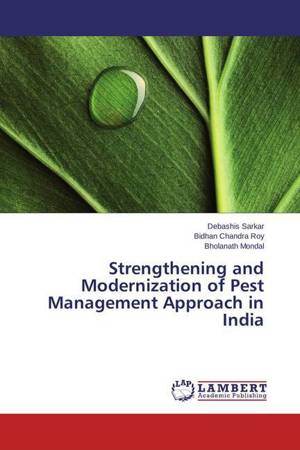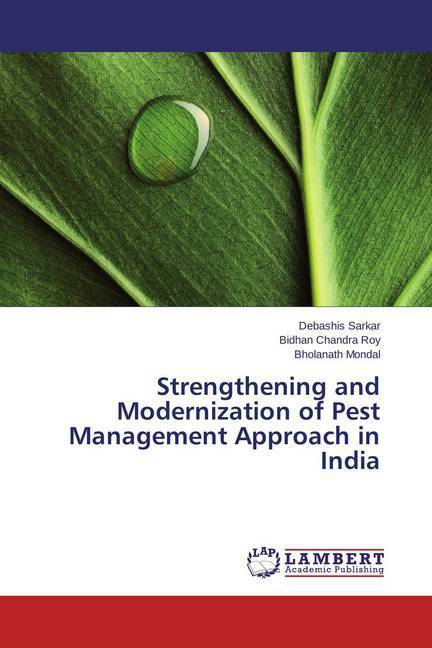
Je cadeautjes zeker op tijd in huis hebben voor de feestdagen? Kom langs in onze winkels en vind het perfecte geschenk!
- Afhalen na 1 uur in een winkel met voorraad
- Gratis thuislevering in België vanaf € 30
- Ruim aanbod met 7 miljoen producten
Je cadeautjes zeker op tijd in huis hebben voor de feestdagen? Kom langs in onze winkels en vind het perfecte geschenk!
- Afhalen na 1 uur in een winkel met voorraad
- Gratis thuislevering in België vanaf € 30
- Ruim aanbod met 7 miljoen producten
Zoeken
Strengthening and Modernization of Pest Management Approach in India
Debashis Sarkar, Bidhan Chandra Roy, Bholanath Mondal
Paperback | Engels
€ 60,95
+ 121 punten
Omschrijving
Strengthening and modernization of pest management approach has fairly succeeded in India. The existing pest management approach has a predisposition in favour of chemical pesticides. Several activities are created to promote integrated pest management but the other government organizations promote chemical pesticides. The number of chemical pesticide registered every year by government is increasing very fast and the facilities for their testing are getting deteriorated with waning manpower for quality control. The progress of setting up a National Pesticide Reference Repository and a National Pesticide Investigational Laboratory is very poor. Following on this, the book considers the scope for pest management loom in the country which requires a change in its mind set to promote integrated pest management technologies with minimum use of quality and genuine chemicals.
Specificaties
Betrokkenen
- Auteur(s):
- Uitgeverij:
Inhoud
- Aantal bladzijden:
- 144
- Taal:
- Engels
Eigenschappen
- Productcode (EAN):
- 9783659699832
- Verschijningsdatum:
- 4/05/2015
- Uitvoering:
- Paperback
- Afmetingen:
- 150 mm x 220 mm
- Gewicht:
- 222 g

Alleen bij Standaard Boekhandel
+ 121 punten op je klantenkaart van Standaard Boekhandel
Beoordelingen
We publiceren alleen reviews die voldoen aan de voorwaarden voor reviews. Bekijk onze voorwaarden voor reviews.









